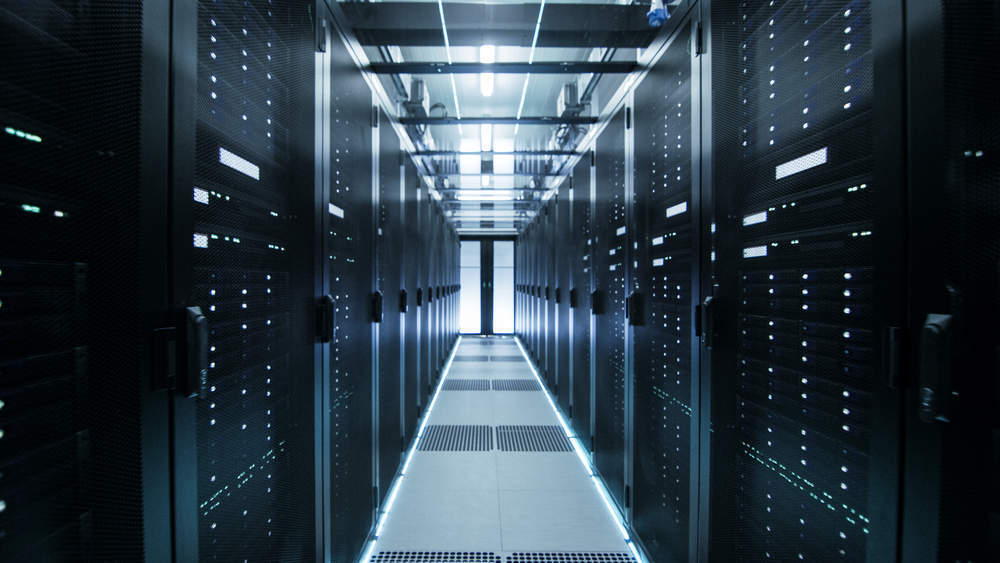
Google recently announced plans to surrender operational control of the cooling systems in its data centres to an artificial intelligence (AI) algorithm.
The move is significant because it will enable a more efficient use of the energy consumed annually by Google’s globally distributed data centres. This has both cost and environmental implications.
The initiative also provides example of how AI can be deployed in data centres in ways that improve their operational efficiency – including their consumption of energy resources.
Google’s use of AI to improve the operational efficiency of its data centres is part of an ongoing process that began with its acquisition of DeepMind, a UK-based AI company, in 2014. Following that acquisition, Google began testing an algorithm that could learn how to best operate data centre cooling systems – including their fans and ventilation equipment – with the objective of reducing their power consumption.
How does it work?
The AI algorithm collects data from thousands of sensors and feeds that data into an AI system that is modelled on neurons found in the human brain.
The AI system then considers a broad swathe of indicators, from energy consumption levels to safety constraints, in order to identify the best course of action.
How well do you really know your competitors?
Access the most comprehensive Company Profiles on the market, powered by GlobalData. Save hours of research. Gain competitive edge.

Thank you!
Your download email will arrive shortly
Not ready to buy yet? Download a free sample
We are confident about the unique quality of our Company Profiles. However, we want you to make the most beneficial decision for your business, so we offer a free sample that you can download by submitting the below form
By GlobalDataPreviously the AI system sent recommendations to data centre managers, who decided whether to implement them. This helped Google achieve a 40% reduction in the amount of energy consumed by its data centre cooling equipment.
However, Google has now relinquished control over the decision making process to the AI algorithm itself, which is now managing the cooling systems at several of its data centres, independently.
Innovations like these offer potential to reduce the costs associated with employing large numbers of data centre personnel. However, they may also fuel concerns among those who fear the impact of AI technologies on the labour market.
Nevertheless, Google’s AI algorithm won’t completely remove the need for human participation in managing a data centre’s cooling operations.
Managers will still be required to supervise the algorithm’s confidence level, as well as any changes it wants to implement. Managers can intervene if they have doubts or concerns about a proposed course of action.
What does this mean for future use of AI?
Google’s decision to allow an AI algorithm to run its data centre cooling equipment represents a major first application of AI to data centre operational control systems on a large scale. I
ts success will therefore be closely monitored, with a view to learning how AI can be applied to other aspects of data centre operations. Other potential applications of AI, within the data centre, include using AI to enhance security, to optimise the use of server and storage equipment, and to augment facility management systems, which oversee everything from temperature and humidity levels to hazard prevention.
Energy consumption represents one of the single largest costs for data centre operators. However, cooling accounts for just 10% of a data centre’s total energy consumption, which means that there are potentially many other ways AI could be applied to enhance energy efficiency. These include the use of AI to optimise the performance of power-hungry computer chips.
With both data centre capacity and energy consumption predicted to rise considerably over the next few years, expect to see even more novel applications of AI technology to data centre operational systems. As with other emerging technology sub-segments, there are opportunities for industry first movers.
There are also wider potential opportunities for Google here, which could leverage its growing expertise in applying AI to its own internal operations by expanding the range and capabilities of the AI solutions it offers its own business customers.
For example, one possibility would be to offer operational improvement apps that use remote monitoring of sensor information on usage and environmental conditions (i.e. IoT) to make decisions automatically on energy management and other processes.







